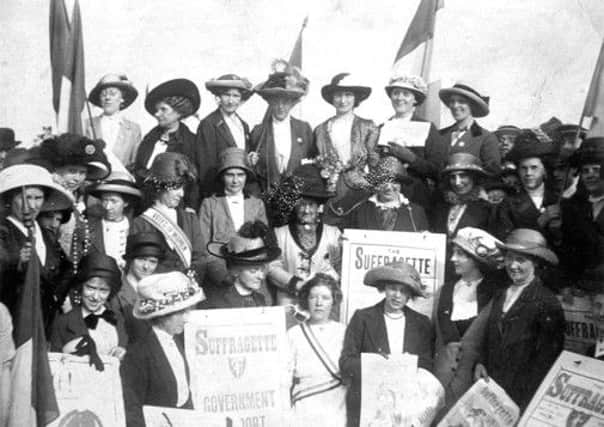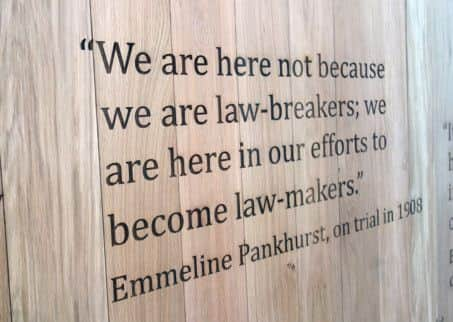Why the Church of England must make itself relevant to 21st century society.


THERE will be joyous celebration today when the Most Reverend Libby Lane is consecrated as the Bishop of Stockport.
She will be the first woman to be appointed to the role of bishop in the Church of England, after decades of debate. Last week Parliament also took steps to ensure that we will have women bishops in the House of Lords sooner than would otherwise have been the case.
Advertisement
Hide AdAdvertisement
Hide AdThe problem is that there are 26 bishops and archbishops in the House of Lords. Under the current law, five of these places automatically go to the most senior of their number - Canterbury, York, Durham, Winchester and London. The remaining 21 places are allocated to the longest serving diocesan bishops.


A temporary change to the law means that for the next 10 years male bishops and female bishops will be in two queues, and when any vacancies arise they will be filled by the most senior female bishop available at the time - ahead of the most senior male Bishop.
If there were no eligible female bishops available at the time of a vacancy, then male bishops would continue to enter the House of Lords.
So far we have only had one announcement of a woman bishop and as she is a suffragan, or junior, bishop - not a diocesan, or senior, bishop. She is therefore ineligible to sit in the House of Lords. We await the name of the first woman diocesan bishop, as she will almost certainly be the first woman bishop in the House of Lords - making clerical and parliamentary history.
Advertisement
Hide AdAdvertisement
Hide AdHowever, while we celebrate the shattering of the stained glass ceiling, we hear some depressing news.
The new Bishop of Burnley, who comes from the Anglo-Catholic wing of the Church that opposed women bishops, and before that women priests, is shortly to be consecrated and has reached an understanding that he will not have hands laid on him, or receive the Eucharist from, the Archbishop of York, who will be at the consecration and who would normally perform both of these duties.
The reason appears to be that the Most Reverend John Sentamu ordains women priests and being ordained by him would ‘taint’ Reverend Philip North and, of all horrors, break the line of male succession. Such a public demonstration of division in the Church on the role of women is very regrettable and many of the public will find this incomprehensible.
When the General Synod of the Church of England voted against women bishops in November 2012, and I secured a debate in the Commons, it was clear that most people in our country thought this decision inexplicable – even eccentric. In these convoluted arrangements being agreed to for the new Bishop of Burnley, we risk the same level of incredulity.
Advertisement
Hide AdAdvertisement
Hide AdThe Church of England is the Established Church of this country. This carries privileges and responsibilities. It is there to serve all communities - to assist, comfort and preside. To baptise, marry and to bury.
Until we see wider constitutional reforms, the House of Lords, including the bishops, will have a role in our law-making. It is vital that they command public trust and acceptance in a country where the mainstream majority assume the equal worth of both genders.
In British society it is nearly a century since the Suffragettes won women the vote, 45 years since the Equal Pay Act and 36 years since the first UK woman Prime Minister. Why can we not for once have a united front in celebrating the role of both women and men in the Church and representing modern England in this century – just the way we are?
Those who cannot move on should consider moving on.
• Diana Johnson is the Labour MP for Hull North.